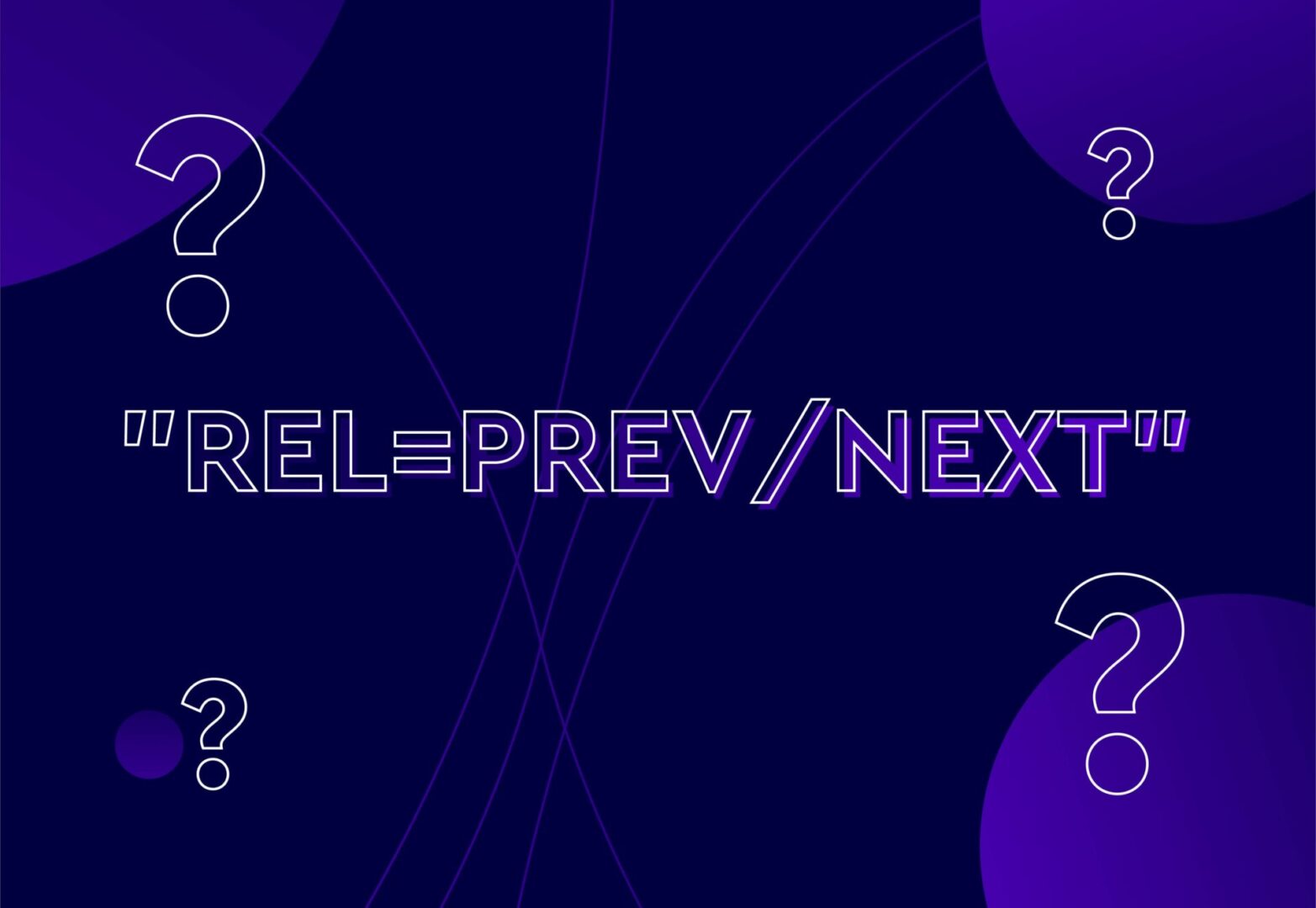The history of search engines is a relatively brief one. SEO as a concept has only been around for around two decades or so but in that time there have been some notable moments. One of which is the rel=prev/next saga that got tech SEOs heated up around 2019.
While it wasn’t exactly headline news the story did cause a lot of consternation in the search optimisation community and was emblematic of Google’s lack of communication.
What was ‘rel=prev/next’ and why did Google remove it?
‘rel=prev/next’ was a piece of code that informed Google that a particular web page was part of a series of pages.
For instance, you might have written several pieces of content about search engine optimisation and at the end of each piece of content, you’d include a piece of code to indicate that the next article is related to it.
‘rel=prev/next’ was also a handy thing for e-commerce sites which would use it to group products together into categories.
For many years, Google had explicit instructions on their site that said to include ‘rel=prev/next’ so that its crawlers could understand the relationship and context from one page to another.
Then, one day, that page just disappeared. This left many confused. Do we all continue to use ‘rel=prev/next’ or not? Should we remove it? Will our rankings be affected if we do or don’t do anything? You can see how this lack of communication caused issues in the SEO community.
The reason Google removed the guidance, and the insistence that it was used if brands wanted to explain the relationship between content clusters, was essentially because they got cleverer.
Through internal linking examination and the content itself, they are better able to identify the relationship between content.
The problem was… they never actually told anyone that!
What is the search engine giant saying now?
Well, it turned out that Google had stopped caring about ‘rel=prev/next’ for several years before they let everyone know.
The only reason that Google went ahead and made a statement about the removal of the ‘rel=prev/next’ guidance was that their webmaster trends team saw that it wasn’t being used anymore by Google search.
Finally, Google said in a Tweet the following:
‘Spring cleaning!
As we evaluated our indexing signals, we decided to retire rel=prev/next.
Studies show that users love single-page content, aim for that when possible, but multi-part is also fine for Google Search. Know and do what’s best for *your* users! #springiscoming’
Nice and clear, right?
While users may well like content all on one page, thousands upon thousands of words on one page covering multiple topics isn’t exactly the most helpful content.
That final sentence – ‘Know and do what’s best for *your* users!’ – is the one we recommend webmasters keep in mind.
Optimising your site with users in mind at all times is going to create the best experience for them and for Google when crawling your site.
What does this mean for SEO?
So, what does Google do now? The way Google indexes content is based on exactly what the crawlers find, which is based on other pagination implementations and signals. As long as it’s clear for a user, then it’s clear for Google and its crawlers.
But no one ever really noticed the change until Google came clean. Its bots are still able to find your ‘previous’ and ‘next’ pages, as long as it’s made clear- like we said if it’s clear for your user, it’s clear for Google. So it all boils down to creating clear, relevant content that is easily navigated. The focus is on a strong site structure with logical internal linking.
Your SEO efforts should also focus on making each page ‘make sense’ as a stand-alone. This gives Google full context for what your page is about and means pagination can work properly. It’s worth noting that the change was hardly noticed until Google came clean, so if you’ve had no issues since the ‘spring cleaning’, then your pagination is likely working!
Should I remove it from my site?
No.
Thankfully, if you still have ‘rel=prev/next’ dotted around your site you don’t need to do it. Having it on your site won’t cause any harm and, in fact, ‘rel=prev/next’ is still used by search engines such as Bing.
As well as Bing, the World Wide Web Consortium still recommends using it to ensure sites are accessible to everyone.
How to do category optimisation in 2024

So now that ‘rel=prev/next’ is consigned to the history books, what can you do to optimise the categories on your site?
Well, in essence, all you need to do is ensure your content structure and internal linking are logical. Google is smarter than it has ever been and if done right there is no reason it can’t figure out the clusters of content you’ve created. Google wants brands to focus on being helpful, it will do the rest.
As well as focusing on the user here are some other best practices:
- Self-canonicalise each page so that Google knows which page is the preferred one on your site.
- Creating clear, logical URLs not only helps users but they are preferred by Google now they have retired ‘rel=prev/next’.
- Avoid using fragment identifiers (hashtags) in URLs, Google ignores them and might not crawl your paginated content.
- Deoptimisie paginated pages so that search engines know to display the main page
- Consider creating subcategories
- Optimising images means Google has accurate, extra info, especially if you include a featured image on the category page
- Don’t ‘noindex’ paginated pages as this can restrict the level of traffic your site receives
A future without ‘rel=prev/next’ seems fine then?
While Google’s lack of communication about ‘rel=prev/next’ was frustrating, the fact is that the removal of the code had very little impact because Google had the systems in place to categorise content in a better, more natural way.
Consciously linking to relevant pages and ensuring your work is helpful are both things worth consciously doing.
To learn more, get in touch with us today.












